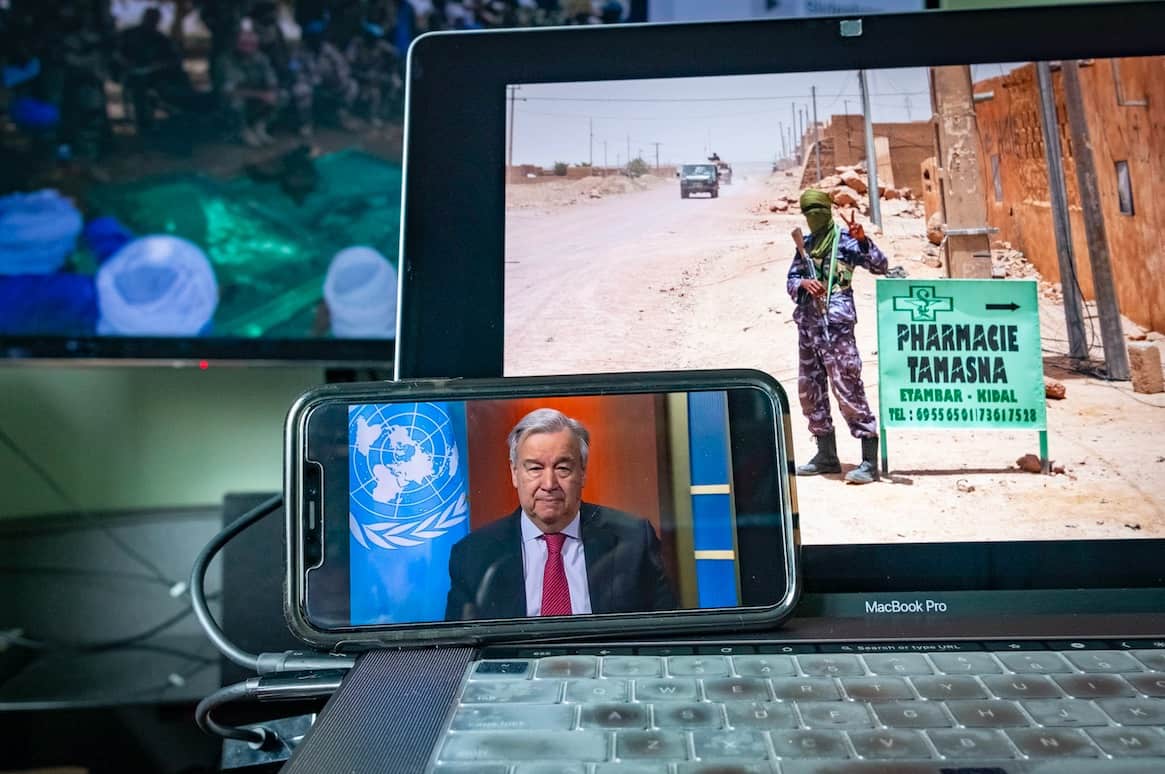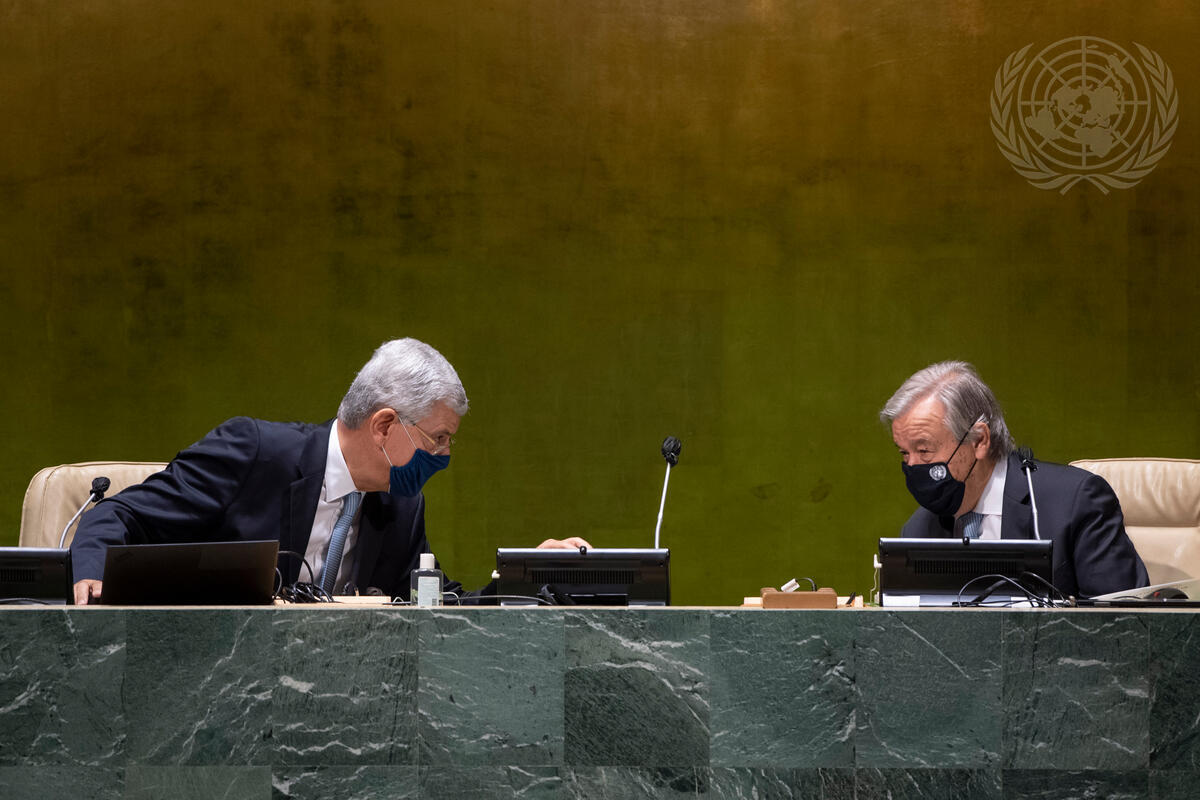COVID-19: UN’s $5.1 Billion Shortfall Threatens Operations Worldwide
by Thalif Deen, Consortium News:
 Thalif Deen reports on a major cash crunch caused by late or non-payments amid the Covid-19 pandemic.
Thalif Deen reports on a major cash crunch caused by late or non-payments amid the Covid-19 pandemic.
When the United Nations was struggling to cope with a cash crisis back in April 1996, one of the many drastic measures it undertook was to cut down on its staff.
So, it took the path of corporate America, and ironically, for a cash-strapped institution, it offered a “golden handshake” — a severance pay of about $80,000 each — to those who would voluntarily leave the near-bankrupt organization.
And as immortalized in the title of Woody Allen’s 1969 Hollywood comedy hit: about 400 staffers decided to “take the money and run.”
Fast forward to October 2020.
In today’s context, says one Asian diplomat, the UN is not in a position to offer such hefty golden handshakes even to some of the highest-ranking officials — if they do volunteer to quit.
A “liquidity crisis” triggered by late or non-payment of assessed contributions by 61 member states — amounting to a staggering $5.1 billion shortfall — is now threatening to undermine both the mandate and world-wide operations.
As of Nov. 2, only 132 Member States (out of 193), have paid their regular budget assessments in full, according to the latest UN figures.
The warnings about the current cash crisis have come from three directions: Secretary-General Antonio Guterres; President of the General Assembly Volkan Bozkir; and the 134-member Group of 77, the largest single coalition of developing countries in the world body.

Volkan Bozkir (left), president of 75th UN General Assembly, with Secretary-General António Guterres, Oct. 26, 2020. (UN Photo, Eskinder Debebe)
When he introduced a proposed program budget for 2021 in mid-October, Guterres warned that “the liquidity crisis has not abated and severely hampers the organization’s ability to fulfil its obligations to the people we serve.”
“At this crucial time for our work, it bears repeating that the organization can only deliver on its mandates if member states meet their financial obligations in full and on time,” he declared.
The responsibility for day-to-day operations, currently under threat, falls squarely on the shoulders of an estimated global staff of about 32,417, according to the latest figures from the Chief Executives Board for Coordination, while the Secretariat staff in New York is estimated at over 3,000.
Prisca Chaoui, executive secretary of the 3,500-strong Staff Coordinating Council at the UN Office at Geneva (UNOG), told IPS: “Indeed management informed us they won’t allow extensions of contracts for more than two years, whereas the current rules allow for an extension up to five years.”
They have clearly indicated they wanted to reduce the liability of the organization, she said, pointing out there is a current “recruitment freeze which means nobody can be recruited and nobody can be promoted because of the liquidity crisis.”
“What we know is that there is an acute liquidity crisis but nobody has spoken yet about a financial crisis but we feel it is coming,” she added.
Economic Turmoil
All this is due to the fact that member states are facing economic turmoil, and it goes without saying that paying the UN won’t be their priority, she argued.
She also complained: “We regret that the budget cycle has moved from two years to one year making the organization negotiate the budget on a yearly basis. Before, we had two-year budget cycles, and this was more secure than the current situation, whereby the budget has to be negotiated every year.”
“While we understand the difficulties the organization is facing, we don’t agree on the attempts to make UN staff become like corporate employees. This goes against the principles of how independent civil servants function,” Chaoui said.

Secretary-General António Guterres holds a virtual press conference to promote a report on his call for a global cease-fire during the Covid-19 outbreak, April 3, 2020. (Loey Felipe, UN photo)
Guy Candusso, a former first vice-president of the New York UN Staff Union, told IPS “with all the uncertainty in the world now, I am not optimistic in the near term.”
In the long term, he said, the financial crisis will most likely work itself out. “In the meantime, I believe all staff will suffer and bear the burden of the cuts when the money runs out.”
When he introduced the “buy-out” early retirement program back in 1996, Joseph Connor, under-secretary-general for administration and management, said “there are too many people in this organization doing the same job for 20 years.”
Connors told reporters the United Nations had set aside about $15 million for the buyout program, under which the Secretariat had said goodbye to 400 employees. With more staffers expected to leave, he said, another $15 million would be sought through savings in the budget to allow for “early separation.”
The severance pay, averaging about $80,000 each, was based mostly on the number of years put in by staffers.
Asked whether he was concerned that some of the best staffers might be the ones accepting voluntary severance, Connor said that in such cases, then Secretary-General Boutros Boutros-Ghali would use his discretion and reject requests, as he has done in the past.
Read More @ ConsortiumNews.com


